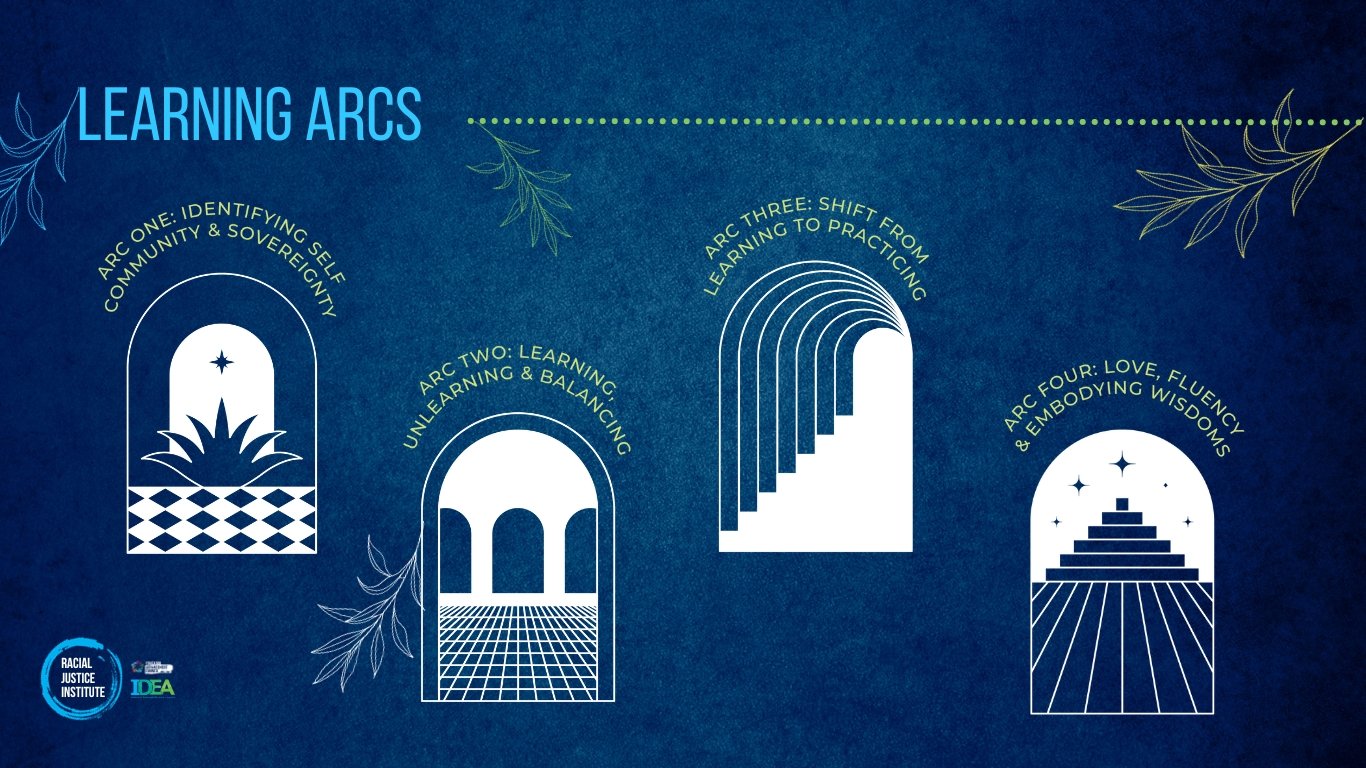racial justice institute
The Racial Justice Institute from 2021-2023 offered learning that centers the experiences of racially, ethnically, or linguistically diverse educators serving Oregon’s Pre-K to 12 students. Funded by Oregon’s Student Success Act, the Institute provided culturally and racially affirming learning environments for educators in order to address race-based isolation and fatigue and grow educators’ capacity to support, lift up, and collaboratively work with teachers, students, and families in their schools and communities.
Educators participated in monthly, virtual learning sessions to deepen their understanding and analysis of the individual, institutional, and systemic impacts of racism on schools and communities. In addition, a small cohort of Fellows co-developed projects that aim to positively change school-level policy and practice towards improving conditions for students. Fellows received a stipend, coaching and met monthly with their cohort.
As a facilitator, I am proud to provide learnings and summary recordings below in the spirit of open source sharing so that the Racial Justice Institute can live on and continue to benefit diverse educators everywhere.

LEARNING ARCS
The Racial Justice Institute is rooted in the values of anti-racism, capacity building, collaboration, humility, and love. The Institute aims to achieve the following:
To deepen educators’ understanding and analysis of the individual, the institutional, and the systemic impacts of racism on schools and communities in order to navigate dominant paradigm spaces
To equip educators with the tools and support to create and sustain culturally and racially affirming environments
To grow educators’ capacity to support, lift up, and collaboratively work with teachers, students, and families in their schools and communities
To connect, align, and amplify culturally sustaining pedagogical approaches
To create an environment where educators can receive support to combat the effects of race-based isolation and fatigue


Example of a session led by Think Shorelines facilitators, Shadiin Garcia and Jonah Canner
“Centering Love”
Session Description: The systems and institutions that we live and work inside of depend on us seeing love as a frivolity, as a whimsical feeling with no practical manifestation. In this session we will explore the tangible aspects of love. We will examine what it could look like to center love in our practice, our pedagogy, and in the way we understand evaluation.

